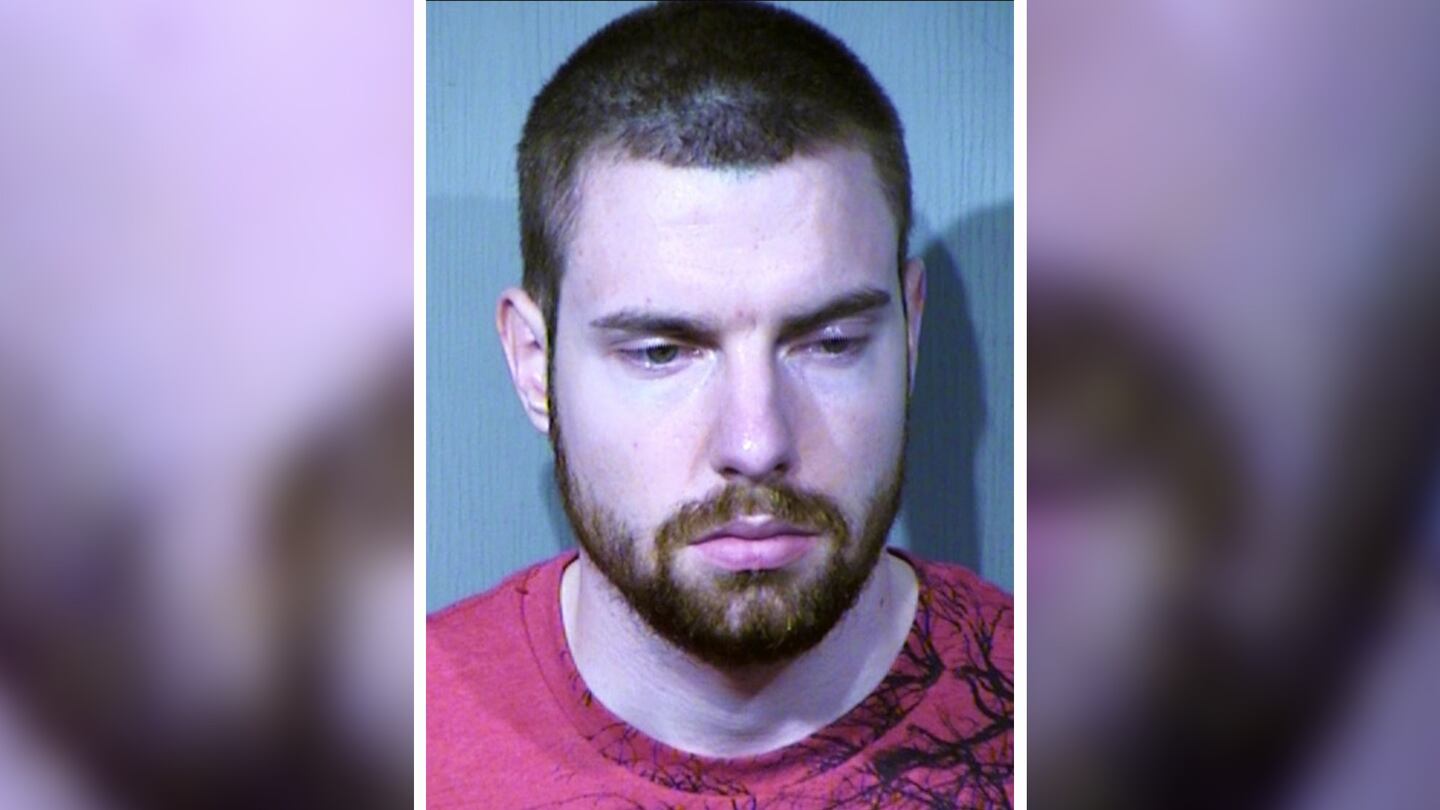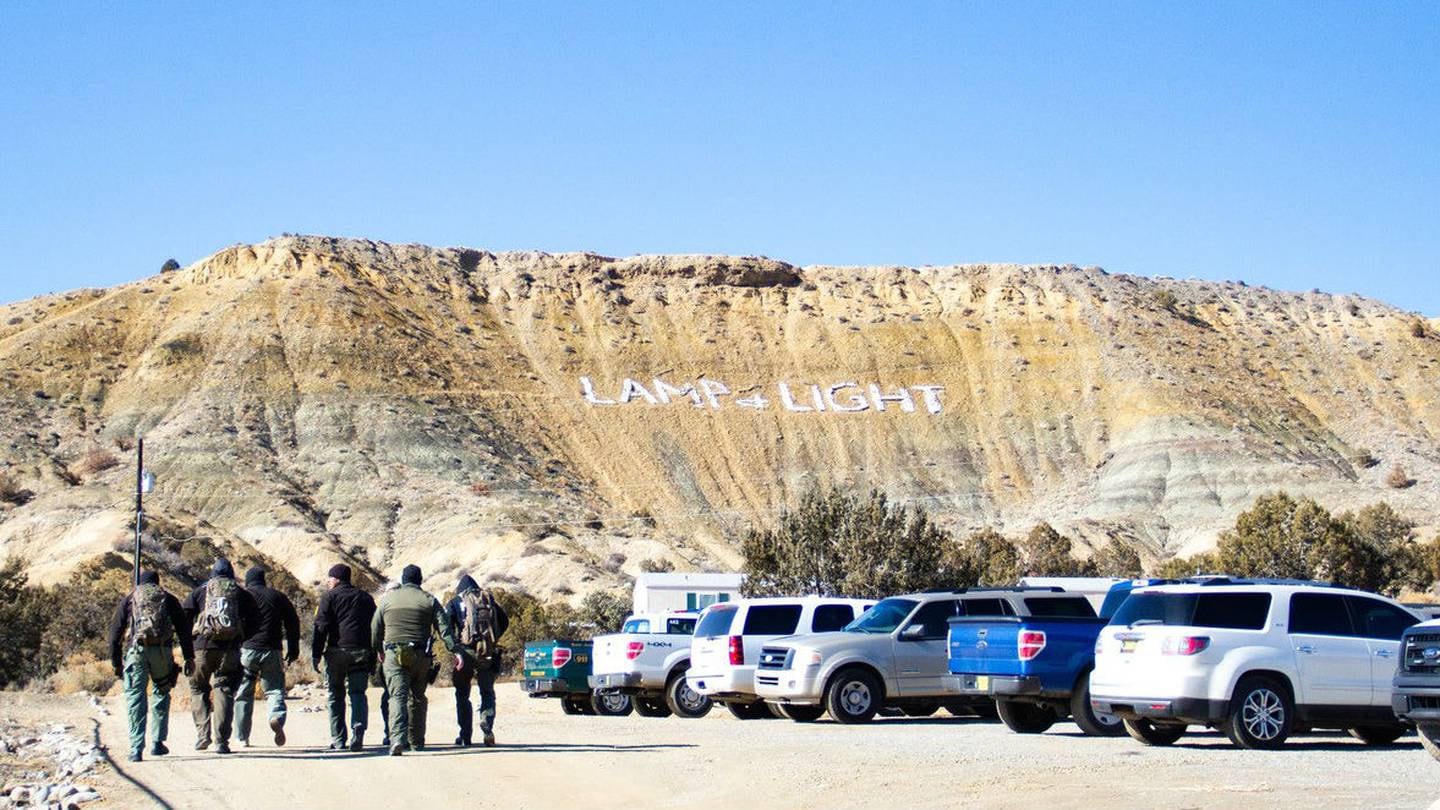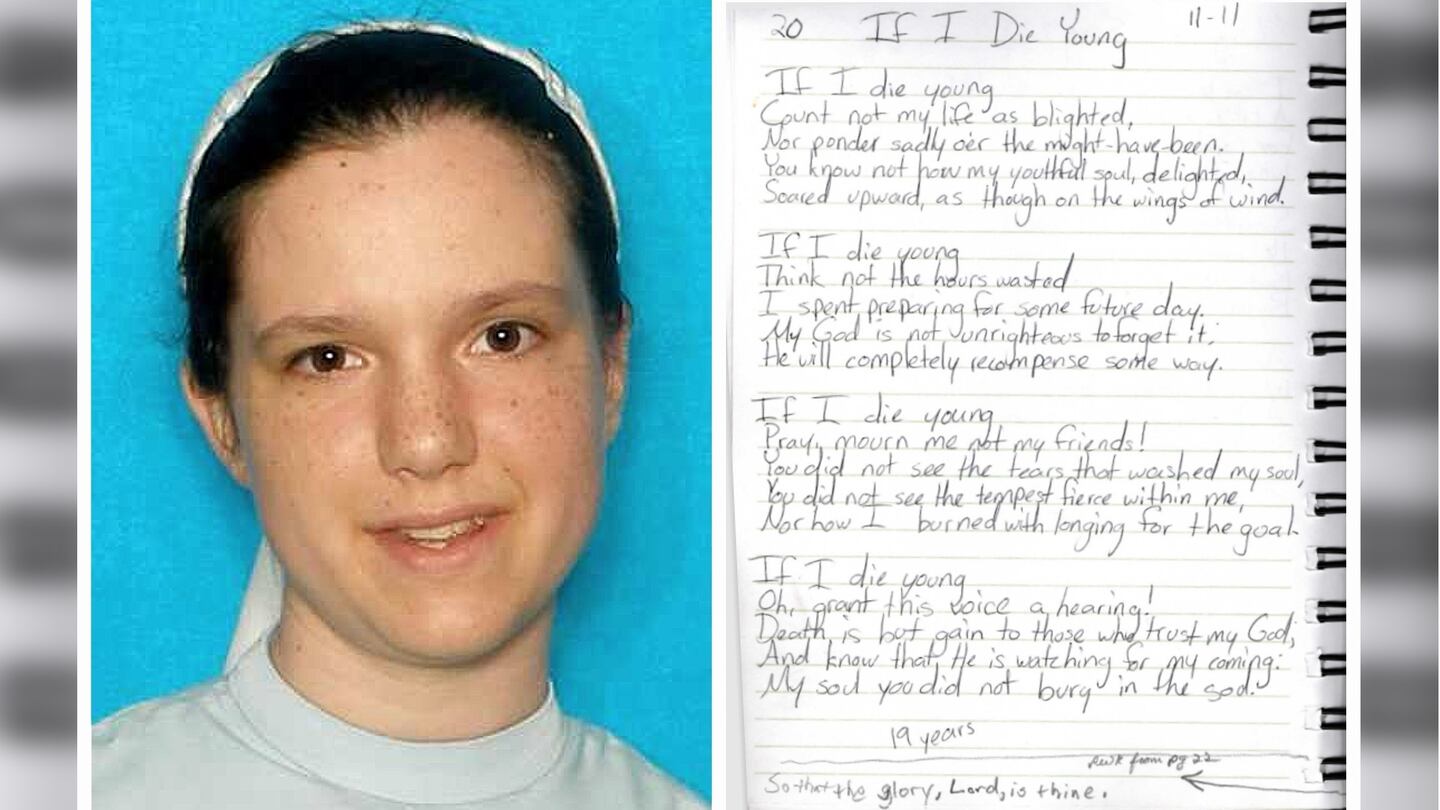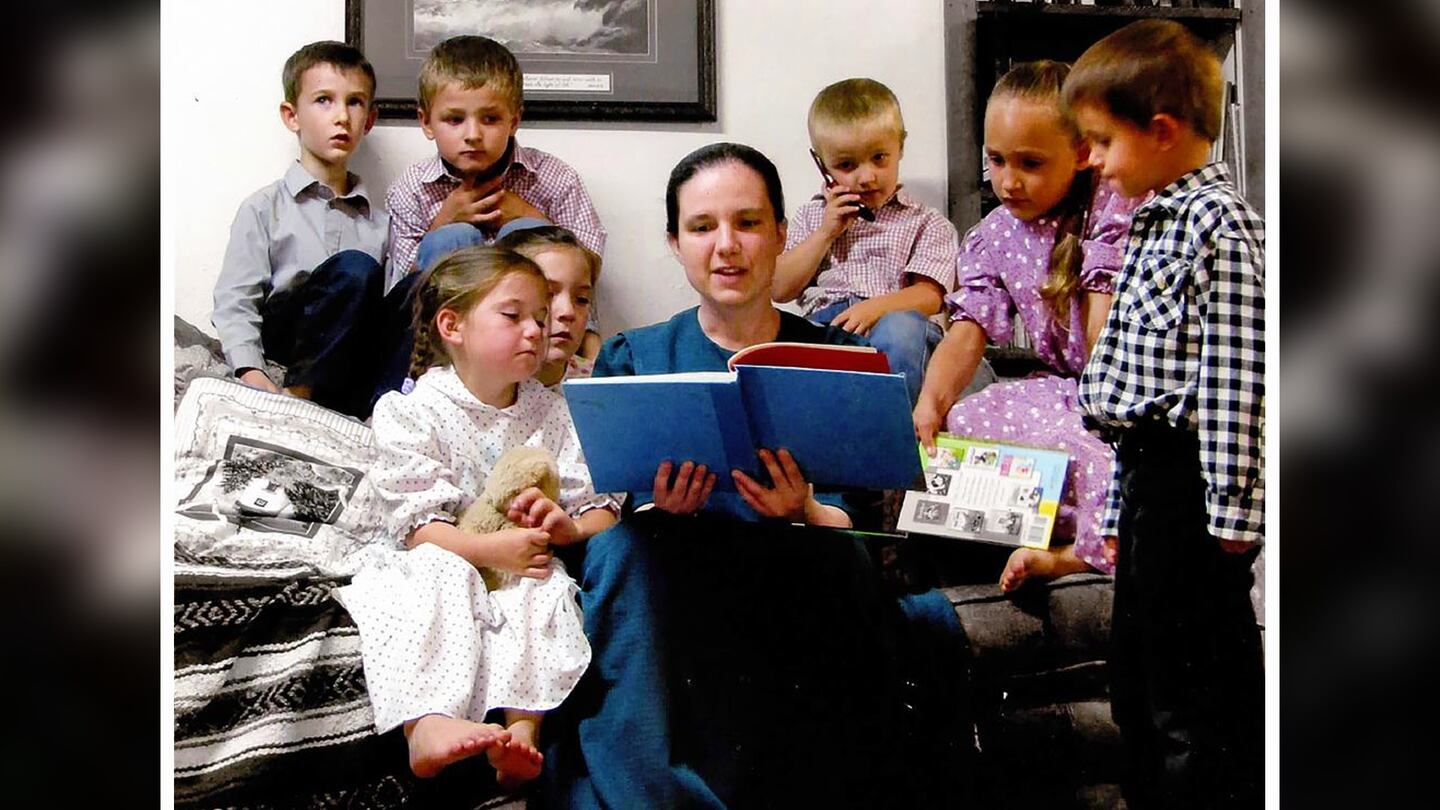FLAGSTAFF, Ariz. — A former U.S. Air Force airman has been sentenced to life in prison for kidnapping a Mennonite woman from her New Mexico community in 2020 and killing her before leaving her body near Sunset Crater Volcano National Monument in Arizona.
Mark Daniel Gooch, 22, was sentenced last week in the killing of Sasha Marie Krause, 27, of Farmington. Krause vanished Jan. 18, 2020, while preparing to teach Sunday school.
The Associated Press reported that Coconino County Superior Court Judge Cathleen Brown Nichols described the crime as one of the most senseless she has encountered in her career.
“Even if he knew the person, it wouldn’t be justified,” Brown Nichols said, according to the AP. “But the fact that he didn’t even know her was so very senseless and mind-boggling.”
Gooch, who was stationed at Luke Air Force Base in Glendale, Arizona, was convicted in October of kidnapping and first-degree murder. According to authorities, he traveled more than 400 miles specifically for the purpose of committing the crime.
Though Gooch was raised in the Mennonite faith in Wisconsin, he and Krause did not know one another. The AP reported following his arrest that one of Gooch’s older brothers had coincidentally attended Bible school with Krause in her Texas hometown.
The brother also once had dinner in the Krause family’s home, according to the AP.
A deadly grudge
Gooch’s motive was animosity toward the Mennonite church over perceived mistreatment, authorities said. The youngest of seven children, he was raised in the Mennonite faith but never formally joined the church.
According to court records, Gooch was implicated as a teen in several burglaries that targeted Mennonites. He was never arrested, however, and he joined the Air Force at age 18.
The resentment lingered, however, and his brother, Samuel Gooch, testified at trial that Mark Gooch had been surveilling Mennonite churches before the murder, the Arizona Daily Sun reported.
Cellphone data put Mark Gooch near two Mennonite churches on Jan. 12, 2020, six days before Krause’s abduction, court documents show. That morning, he texted his brother asking about his plans for the day.
“Making some breakfast. Might do some cleaning,” Samuel Gooch replied. “Bored as (expletive).”
“Hmm, same for some reason,” Mark Gooch wrote. “Even this morning’s surveillance was boring.”
“Bunch of old people without much to live for,” Samuel Gooch texted.
“And clearly not the Mennonite people we grew up with,” Mark Gooch replied. “Sad to say, another disappointment.”
>> Related story: Missing Mennonite woman found slain over 250 miles from New Mexico home
Text messages exchanged with a third Gooch brother also demonstrated Mark Gooch’s animosity. In one exchange, which took place a couple of months after Krause was murdered, both Mark and Samuel Gooch expressed glee after their brother, a Virginia state trooper, had written a Mennonite driver a ticket for reckless driving.
“I hope you treated em like (expletive),” Mark Gooch wrote.
Jacob “Jake” Gooch then texted that he had “coughed on (the driver) so he would spread corona(virus) to the wedding they were going to.”
“Ha ha, that’s (expletive) hilarious,” Mark Gooch responded.
NBC Washington reported that Jacob Gooch resigned from his post after the texts were brought to light during the Krause murder investigation.
Samuel Gooch was sentenced in 2020 to three years of probation for flying from Wisconsin to Arizona after the murder to retrieve the .22-caliber Marlin rifle with which Mark Gooch had killed Krause. Part of his deal for immunity including testifying against his brother last fall.
Mark Gooch faced either life with the chance of parole or a natural life sentence. Brown Nichols sentenced him to a sentence of natural life.
San Juan County Sheriff Shane Ferrari explained in a statement following the sentencing that “a natural life sentence means that there are no parole hearings, no credit for time served, no possibility of release.”
“Short of a successful appeal or an executive pardon, such a sentence means that the convicted will, in no uncertain terms, die behind bars,” Ferrari said.
Gooch expressed no emotion at his Jan. 19 sentencing, which fell two years to the date Krause was reported missing.
U.S. Air Force airman #MarkGooch was sentenced to spend the rest of his life in prison for the murder and kidnapping of Mennonite woman Sasha Krause in January 2020. @LawCrimeNetwork pic.twitter.com/wSCFAgopNf
— Law&Crime Network (@LawCrimeNetwork) January 19, 2022
“Now, instead of honorably serving his nation, he is going to serve a humiliating life term in prison,” Coconino County Attorney William Ring said in a statement last week. “The victim’s faith was important to her, so as guided by Proverbs, we all do right by caring that justice gets done for the vulnerable ones.”
Gooch’s parents said after the sentencing hearing that they are praying for Krause’s loved ones, with whom they spoke during the trial, according to the AP. Krause’s parents declined to attend the hearing but instead had a representative read a letter to the judge.
In the letter, the Krauses described their slain daughter, who was the oldest of their children, as a good sister who was conscientious and confident. The couple wrote that they will never understand why their daughter was targeted for such a violent end.
“God will use her death for His glory, and I am convinced He has eternal purposes for Sasha that we can only guess about from here,” the letter read.
Watch Gooch’s entire sentencing hearing below, courtesy of the Law & Crime Network.
Gone in the night
Court records indicate that Krause vanished around 7:30 p.m. Jan. 18, 2020, after leaving her home on Crouch Mesa for the nearby Farmington Mennonite Church, where she was to pick up some materials for her Sunday school class. Krause, who hailed from Texas, lived with several other Mennonite women from her community, called Lamp & Light.
Court documents state that at some time while Krause was at the church, Gooch abducted her.
“He took her in his car and drove in the direction of Flagstaff, leaving Sasha’s car and car keys behind,” according to the documents. “Sasha still had her cell phone — at least, for a portion of the drive — but nobody was able to contact her after that day.”
One of Crouch’s roommates realized around 1:30 a.m. Jan. 19 that she had never come home. Her silver Ford Focus was found abandoned in the church parking lot, the keys inside.
>> Read more true crime stories
One of her friends discovered that cash was missing from the church’s donation box. Her roommates called police.
“Unfortunately, by that time, Sasha was already many miles away, and probably already deceased,” the court records state.
San Juan County sheriff’s deputies responded around 3 a.m. to Lamp & Light Publishers, a Mennonite bookstore located across the street from the church. Krause, like others in her community, worked at the business.
The seclusion of the small community made Krause’s disappearance unique, Ferrari said in 2020.
“They have a business, they live on-site, and we never respond there very often for anything; so it struck us as very odd that we had someone missing, especially because you see them out in a group, and having someone gone was very strange to us,” Ferrari said.
The search for Krause, which garnered national attention, came to an end Feb. 21, 2020, when a camper collecting firewood found the body of a woman near Sunset Crater Volcano National Monument, north of Flagstaff. The woman was found face down, her hands bound with duct tape, in a clearing off Leupp Road.
The camper found the body after spotting a patch of white under volcanic cinders and dry pine needles. Shaken and crying, she hurried to a nearby visitor center and told rangers she had seen legs and shoes, according to an AP story.
The dead woman matched Krause’s description down to the gray, pinstriped dress, white fleece jacket and black shoes she was last seen wearing. Fingerprints confirmed her identity.
Krause had been shot in the back of the head. Her underwear and the traditional head covering she wore as a Mennonite were missing.
While there were no eyewitnesses to Krause’s abduction, surveillance footage from a nearby business showed a Volkswagen Jetta matching the description of Gooch’s car in the area the day she vanished.
Cellphone data also put Gooch in Farmington. According to records obtained by the AP, Gooch admitted to driving to Krause’s community that day, but said he had done so because he missed the fellowship of the Mennonite community.
Prosecutors argued, however, that Gooch was lying in wait when Krause drove to the church that night.
“Defendant was in the vicinity of Sasha’s Mennonite community, Lamp & Light, from around 4:14 p.m. until after 7:45 p.m. — a period of three hours and 31 minutes,” according to the state’s sentencing memorandum. “This was not a large community; the entire community is visible from a nearby hillside.
“That night, sometime after 7 p.m. and long after the sun had set, Sasha went to the church building in her car. It was there that defendant ambushed Sasha and kidnapped her.”
A digital trail
According to the Daily Sun, detectives first identified Gooch as a suspect after learning that his cellphone was the only other device communicating with the same cell towers as Krause’s phone the night of Jan. 18.
Krause’s phone pinged on multiple towers as she was taken west toward Flagstaff, along the same route and in the same time frame as Gooch’s phone, court records state.
“In fact, both defendant’s cell phone and Sasha’s cell phone were communicating with the same cell site just seconds apart, indicating that defendant and Sasha were traveling west together,” the documents say. “Additionally, defendant’s cell phone records show that he drove directly from Farmington, New Mexico, to the area around Sunset Crater Volcano National Monument — the same area where Sasha’s body was eventually discovered.”
Gooch’s cell data shows that he spent more than two hours in the area where Krause’s body was dumped. Gate security noted that he returned to Luke Air Force Base just before 7 a.m.
The airman returned to the crime scene two days later, though authorities could not determine why.
When his rifle was eventually recovered as evidence, investigators found a box of .22-caliber ammunition with it. A single bullet was missing from the box.
Ballistics testing proved that the bullet removed from Krause’s neck during her autopsy had been fired from Gooch’s rifle.
In court filings submitted before sentencing, prosecutors argued that Krause’s murder was particularly heinous.
“This was an especially cruel murder. Sasha was abducted from her community and driven hours away to a remote location in the middle of the night,” the sentencing memo states. “That hours-long drive undoubtedly induced fear and uncertainty in Sasha’s mind about her fate — right up until the moment defendant killed her.”
In their own sentencing memo, the defense argued that, like Krause, Gooch was leading a “good and productive life” before his arrest for the murder, which he denies committing.
Multiple family members, including his parents and one of his brothers, wrote letters to the judge pleading for leniency. His mother described how he was raised to “respect and have a Godly reserve for women and young girls alike.”
“Please have mercy and compassion on behalf of a young man who has much to give, who has an outstanding support base to draw from, which could make a tremendous contribution to society and his country if given an opportunity,” Anita Gooch wrote.
She added that her son had given himself over to God since his incarceration.
“He knelt in that small cell and gave his heart and life to serve the Lord Jesus Christ and repented of his personal sins,” her letter to the judge stated. “He shared this encounter with us, (and) we can attest that we see a changed young man from his heart. We rejoice with him in his decision to follow Christ regardless of its cost.”
Prosecutors shared photos of Krause and her family during the sentencing hearing, but the single attachment to the state’s sentencing memo was a poem she wrote nearly a decade before her death, when she was 19 years old.
The poem, titled “If I Die Young,” asked that her survivors not lament the time she had spent preparing for the future she was never given.
“If I die young, count not my life as blighted, nor ponder sadly o’er the might-have-been,” the first stanza read. You know not how my youthful soul delighted, soared upward as though on the wings of wind.”
©2022 Cox Media Group














